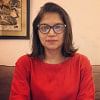
Seuty Sabur
The writer is Associate Professor, Anthropology Program, Dept. of Economics and Social Science, BRAC University.
The writer is Associate Professor, Anthropology Program, Dept. of Economics and Social Science, BRAC University.
Our people opened a new horizon of possibilities and demonstrated what it means to be active citizens. In the days of chaos following the fall—with no police and the army happy to sit back—they took on traffic regulation, protected their neighbourhoods, and organised a massive relief effort for the flood victims. They did all this without command and with no thought of reward other than a functioning state. The jury is still out on what they have received in turn.
For three days we were a state without a government.
Either we finally build a people’s republic or we condemn ourselves to repeat this “legacy of blood”.
Is it not easier to defeat your enemies in parliament than to be permanently on the warpath against some shapeshifting enemy?
Every Women’s Day, I suffer from this ambivalent feeling of euphoria and despair.
It is time to reimagine our city—a city where I can ride my bike without being run over or recorded by a stranger, where Lata can wear whatever she wants, and Meem can ride her scooter home safely without being questioned about her clothes, her movements or her company. We cannot wait for the patriarchy to be fully “smashed” before we can imagine this city and claim it as ours.
I was invited to write for 16 Days of Activism against Gender-Based Violence, and it felt as if the universe was preparing confetti of convoluted emotions to throw at me.
I have been feeling unwell since October 13. After the mayhem in Cumilla, I knew it wouldn’t be the last. With a broken heart, my father-in-law and I, along with my son, decided to continue with our tradition of puja visits and mandap-hopping, yet we were all deeply disturbed, witnessing the carnage unravelling with a helpless rage.
Our people opened a new horizon of possibilities and demonstrated what it means to be active citizens. In the days of chaos following the fall—with no police and the army happy to sit back—they took on traffic regulation, protected their neighbourhoods, and organised a massive relief effort for the flood victims. They did all this without command and with no thought of reward other than a functioning state. The jury is still out on what they have received in turn.
For three days we were a state without a government.
Either we finally build a people’s republic or we condemn ourselves to repeat this “legacy of blood”.
Is it not easier to defeat your enemies in parliament than to be permanently on the warpath against some shapeshifting enemy?
Every Women’s Day, I suffer from this ambivalent feeling of euphoria and despair.
It is time to reimagine our city—a city where I can ride my bike without being run over or recorded by a stranger, where Lata can wear whatever she wants, and Meem can ride her scooter home safely without being questioned about her clothes, her movements or her company. We cannot wait for the patriarchy to be fully “smashed” before we can imagine this city and claim it as ours.
I was invited to write for 16 Days of Activism against Gender-Based Violence, and it felt as if the universe was preparing confetti of convoluted emotions to throw at me.
I have been feeling unwell since October 13. After the mayhem in Cumilla, I knew it wouldn’t be the last. With a broken heart, my father-in-law and I, along with my son, decided to continue with our tradition of puja visits and mandap-hopping, yet we were all deeply disturbed, witnessing the carnage unravelling with a helpless rage.
Why is it so difficult to write about something that seems so obvious and urgent? Can it have something to do with that very “obviousness” itself?
Our comrade Ayesha Khanam, president of Bangladesh Mahila Parishad, left us on January 2, 2021. Like everyone else, I had been convinced that she would defeat cancer and come back strong.